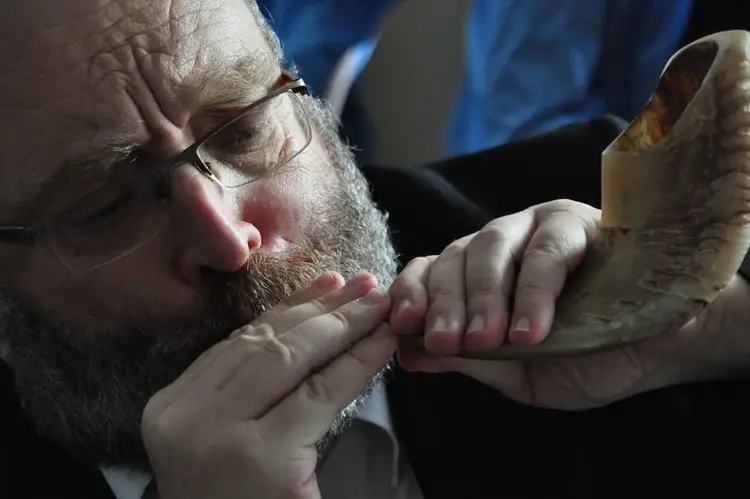Rosh Hashanah 2024: When is the Jewish festival and how to wish someone happy new year in Hebrew

Jewish communities in Greater Manchester will be observing the high holidays all month long, beginning with Rosh Hashanah this week.
The Jewish New Year will start on the evening of Wednesday, October 2. This celebration is succeeded by several days of fasting, including Yom Kippur, which begins on October 11. Additional celebrations will continue over the course of the Jewish month of Tishrei.
During this season, loved ones gather to celebrate, and many people visit synagogues to listen to the sound of the shofar, a horn that produces music. There are also specific foods that are typically eaten to honor the event.
EXPLORE FURTHER: "I'm always conscious of my Jewish identity in public; I make an effort to complete my errands quickly and return home."
Here’s a complete guide to Rosh Hashanah and the Jewish holy days.
When Are Rosh Hashanah And High Holidays?
Throughout the sacred month of Tishrei, various festivals and fasting days take place, beginning with Rosh Hashanah, which translates to 'the start of the year'.
In the Hebrew calendar, which incorporates both lunar and solar cycles, a new day begins at sunset. This upcoming year is designated as 5785. The Rosh Hashanah festivities, lasting for two days, commence at sunset on Wednesday, October 2, and conclude at nightfall on Friday, October 4.
Yom Kippur, known as the Day of Atonement, is marked by a 25-hour fast that begins at sunset on Friday, October 11, and ends at nightfall on Saturday, October 12. Following this, Sukkot, a week-long harvest festival celebrating the time the Jewish people spent in the desert, begins on October 16. Simchat Torah, a holiday that celebrates the conclusion of the annual Torah reading cycle, follows shortly after on October 24.
Celebrating Rosh Hashanah And The High Holidays
Families and friends usually gather to enjoy a meal on both nights, beginning with a ceremony that includes prayers and special dishes. They dip apples in honey to symbolize a sweet and prosperous new year, and also enjoy pomegranates, honey cake, and round challah bread.
The first day of Rosh Hashanah marks the start of a period of ten sacred days referred to as the high holidays. This time is dedicated to reflection and repentance for the Jewish community. During this season, many people come together in synagogues for worship, especially on Rosh Hashanah and again on the tenth day during the Yom Kippur fast.
At the synagogue, the sound of the shofar, which is a ram's horn, is an essential part of the New Year service and is also sounded at the conclusion of Yom Kippur. During the festival of Sukkot, people eat all their meals in a temporary outdoor structure, honoring the time the Jewish people lived in the desert. Additionally, during Simchat Torah, the community comes together to celebrate the start of a new year of Bible readings.
During Rosh Hashanah, Jewish people greet each other with "shanah tova," signifying "good year," or "shanah tovah u'metukah," which translates to "a good and sweet new year" in Hebrew. On Yom Kippur, the typical well-wishing is "g'mar chatima tova," meaning "a good final sealing." In the days leading up to this solemn observance, some individuals say "tzom kal," which means "easy fast."













































